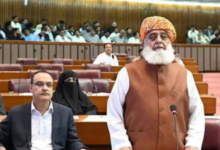Israel-Iran confrontation
Israeli Prime Minister Benjamin Netanyahu struck a defiant tone when he said that his nation would choose whether and how to react to Iran’s attacks on April 13. Even though the US and 47 other nations have released a statement categorically denouncing the assaults on Israel by Iran “and its militant partners,” Netanyahu has ignored appeals for moderation from close friends.

Ebrahim Raisi, the hardline president of Iran, has cautioned Israel against reprisal and implied that his country is capable of more large attacks than those that were seen over the weekend.
The world at large, as well as West Asia, which is already experiencing the aftermath of the six-month-old Israel-Hamas conflict, are concerned about this aggressive posturing by both sides. Israel and Iran have been asked to show “maximum restraint” by the UN, but neither country seems to be willing to lower their rhetoric. Reducing hostilities is a critical task for the US and its partners.
Regarding the April 1 Israeli attack that killed two Iranian generals in a Damascus, Syria, consulate facility, the West has been evasive. Whether the attacker is a friend or an enemy, such aggressive remarks should be strongly condemned.
Israel cannot afford to militarily attack Iran given its constant bombing of Gaza and growing isolation from the rest of the world. Israel need to see sense when it comes to the fact that the Iranian assaults resulted in no deaths. Israel should respond to Iran “in a way that is smart as well as tough and also does as little as possible to escalate this conflict,” as UK Foreign Secretary David Cameron has correctly hoped. Both sides must exercise caution in order to prevent the creation of a new combat zone.







